![]() — หน้าแรก — เกาะติดข่าว
— หน้าแรก — เกาะติดข่าว
ข่าวเศรษฐกิจและธุรกิจประจำสัปดาห์
-

Daily stock trading at Yangon Stock Exchange (YSX) is up by 42 percent since 30 March 2018 when YSX increased stock trade matching times from two to four a day
The average daily stock trading at Yangon Stock Exchange amounted to around Ks- 57 million, a 42-per-cent increase, after the YSX has increased stock trade matching times from two to four a day, said Min Thu, senior manager of Yangon Stock Exchange at a press conference on May 15. “In the past, the average daily stock trading amounted to over Ks-39 million. Since March 30, the YSX has increased stock trading times to four,” he added. The average number of stock shares has increased from 6,761 to 9,251 a day, up over 37.6 per cent. The stock trading at the YSX decreased from Ks-70.7 billion in 2016 and Ks-22.13 billion in 2017. The stock trading in January hit over Ks-1.2 billion, a record low of over Ks-0.74 billion in February, over Ks-0.78 million in March, over Ks-0.87 million in April. The average stock trading is about three times lower than that in the same period last year. -
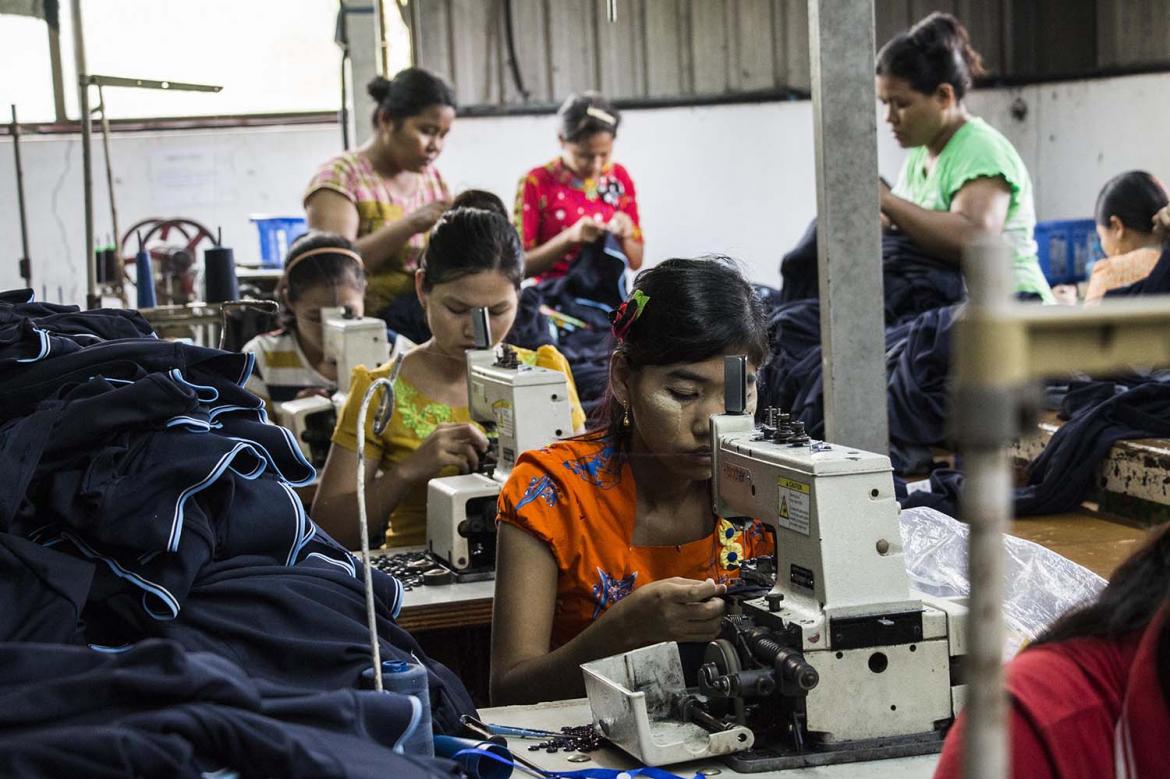
Myanmar government set a new daily minimum wage of 4,800 Kyats to reduce poverty and inequality, and to strengthen democracy and promote sustainable development
This week the Myanmar government has announced a new daily minimum wage of K4,800 for workers. Arguments will be heard that the new rate is too high or too low from employers and workers alike. But we should not lose sight of the positive impact the minimum wage is already having on the reduction of poverty and inequality on one hand, and the strengthening of democracy and social dialogue on the other. Myanmar’s introduction of a minimum wage in 2015 was an early landmark for labour market reforms. Although Myanmar has not ratified the International Labour Organization’s Minimum Wage Convention 131, its Minimum Wage Law largely reflects its requirements. Foremost among these is that the minimum wage is set through an open and transparent process of tripartite social dialogue between the government, representative employers and workers’ organisations. Over the past year, a tripartite National Minimum Wage Committee has undertaken nationwide consultations to review the level set in 2015, resulting in the announcement this week. Setting the minimum wage requires a complex balance of many factors, including the needs of the workers and their families, promoting productive and sustainable enterprises, attaining high levels of employment, and ensuring competitiveness in the regional economy. The minimum wage is a single tool for multiple and seemingly contradictory objectives. -
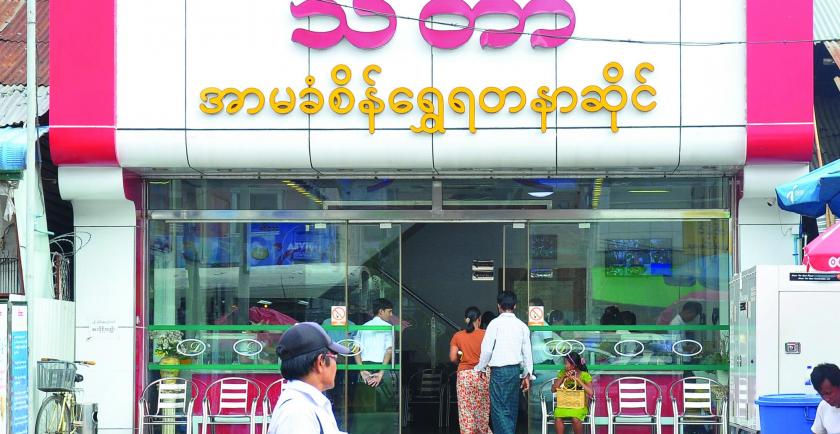
Myanmar gold traders will start the export and import of pure gold with the international gold weight measurement standard of fine gold and gold bar which is a slightly lower standard than pure gold
Myanmar's local gold traders are planning to start up gold export and import businesses following the government's announcement of relaxing rules for trading gold products abroad, the official Global New Light of Myanmar reported Tuesday. The export and import of gold and jewellery were permitted by the Ministry of Commerce aiming at eradicating illegal trading as well as earning more revenue for the government and maintaining the market's stability. The traders will start the export and import of pure gold in accordance with the international gold weight measurement standard of fine gold and gold bar with slightly lower standard than pure gold. -
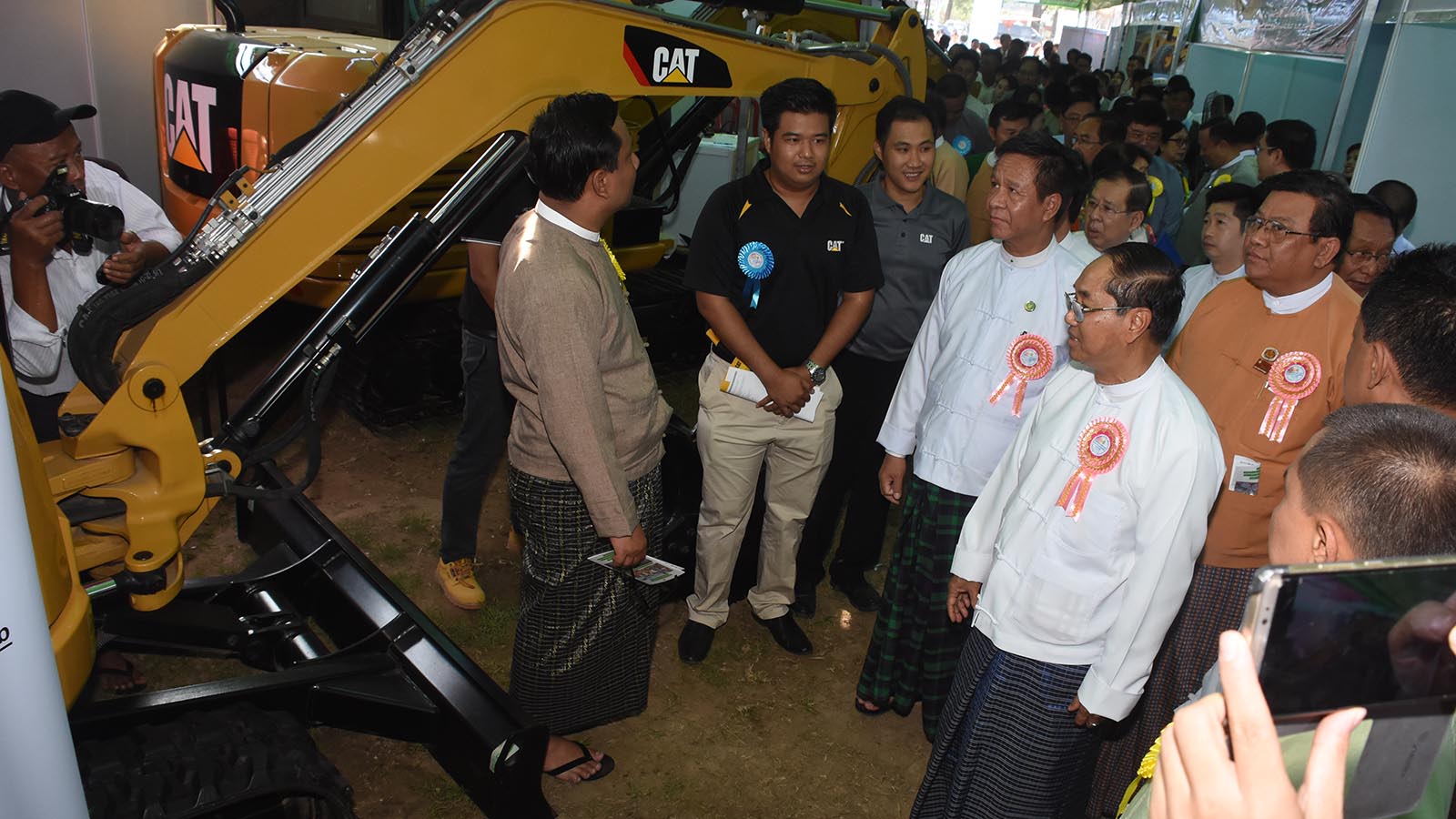
MSME products exhibition and competition was held in Ayeyarwaddy region to raise the quality of products and long-term competitiveness
Small and Medium Enterprises Development Committee (SMEDC) Chairman Vice President U Myint Swe attended the opening ceremony of the exhibition and display (2018) of Ayeyawady Region products produced by local micro, small and medium enterprises (MSMEs) held in the town hall, Pathein Town, Ayeyawady Region, yesterday morning. Present at the ceremony were SMEDC Vice Chairman Union Minister U Khin Maung Cho, Ayeyawady Region Chief Minister U Hla Moe Aung, Region Hluttaw Speaker, representatives of Pyithu Hluttaw, Amyotha Hluttaw and Region Hluttaw, Deputy Minister, region ministers, Union of Myanmar Federation of Chambers of Commerce and Industry (UMFCCI) President and members, work committee members, departmental officials, technicians, experts, MSME business owners and officials. While addressing the ceremony, SMEDC Chairman Vice President U Myint Swe said this was the third MSME local regional products exhibition and competition being conducted, with the aim of developing MSMEs in Ayeyawady Region, raising the quality of products and long-term competitiveness. -

Yangon regional government plans to set official benchmark property price for properties in Yangon for 2018 – 2019 (U Myint Thaung, Regional Minister of Planning and Finance)
The Yangon Regional Government will this month begin conducting property valuations to set an official benchmark price for properties in Yangon , said U Myint Thaung, Regional Minister for Planning and Finance. “We will value the properties based on demand and supply in the various townships, wards and streets of Yangon Region at the beginning of the fiscal year. This is how we set the market price for property in 2017-18,” he said. Setting an official market price for property will make it easier for buyers and sellers to determine the amount of stamp duties and other property taxes to be paid. U Myint Thaung was responding to questions raised during a recent regional parliament session. He added that the Yangon government is amending and refining its methods and procedures for accurate valuations. -
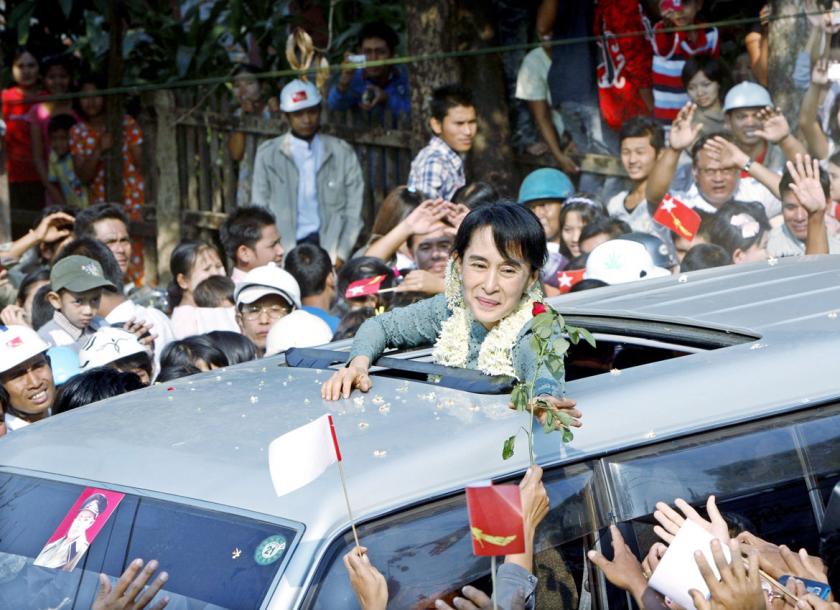
Experts warn that implementation of JICA's Master Plan for Dawei Special Economic Zone (SEZ) without a legally required site-wide assessment would be "unlawful"
Experts warn that implementation of the Japan-supported master plan for Dawei Special Economic Zone (SEZ) without a legally-required site-wide assessment would be “unlawful” and that transparency and meaningful public participation are necessary to determine who benefits from those plans before moving ahead. The master plan for Dawei SEZ, drafted by Japan International Cooperation Agency (JICA), will be released towards the end of May. U Myint San, vice president of Dawei SEZ management committee (DSMC), told The Myanmar Times that JICA has been drafting the master plan since 2017. The master plan will be finalised by late May and will cover all the phases of the zone. The plan will include three phases: now until 2030, 2030-40 and 2040-50. Japan proposes prioritising infrastructure and connectivity for Phase 1, including roads, power supply projects and deep-sea port. The DSMC will deliberate JICA’s draft, make changes and submit the finalised blueprint to the national-level SEZ Central Committee, which is chaired by Vice President U Henry Van Thio. -
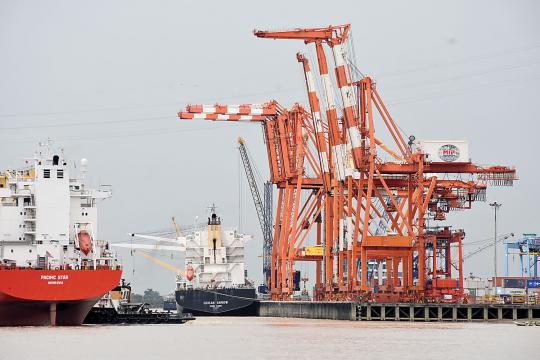
Yangon Region Government plans to develop a deep seaport project and a special economic zone (SEZ) project on a 50,000 acre land in Yangon
Yangon Region government plans to develop a deep seaport project and a special economic zone project on a 50,000-acre land in Yangon, said Yangon Region Chief Minister Phyo Min Thein. “A jetty can be built at the mouth of Sea in Yangon. We can develop Yangon special economic zone project like Thilawa Special Economic Zone Project on the other side of Yangon,” said the Chief Minister.. “The jetty can be moved to the sea. Currently, Yangon jetty located at the heart of Yangon cannot operate its service round the clock. Loading and unloading operations can be carried out in the compound of Yangon jetty. But trucks find it difficult to transport containers to industrial zones during the day. A motorcade is allowed in case of emergency, he added. The region government is making negotiation with the Union government on the construction of Yangon SEZ project on the other side of Yangon. There is demand for more around-the-clock cargo jetties as there currently exists Thilawa jetty that conveniently services industrial zones in east Yangon as it is located on the east bank of Yangon River. -

CEO conference 2018 on the Myanmar economy was held on 11 May 2018 in Yangon to raise awareness on Myanmar laws and investment opportunities: it was attended by senior Myanmar government officials, top CEOs, and business people
The CEO Conference 2018 on the economy was held in Yangon at the Novotel Yangon Max on May 11. The CEO Conference 2018 was a forum of senior Myanmar government officials, eminent persons in their fields, top CEOs and business people. The CEO Conference 2018 was attended by Deputy Minister of Planning and Finance Ministry Maung Maung Win, Yangon Region government Chief Minister Phyo Min Thein, Sagaing Region government Chief Minister Dr. Myint Naing, economist Dr. Aung Tun Thet, cabinet members, business persons at home and abroad and economic analysts. One of the event organizers of this event, Dr. Wunna Aung, Director of Directorate of Investment and Company Administration (DICA), said, “The objective of this conference is to provide a wide range awareness of the laws by Myanmar CEOs and to get awareness on investment opportunities. Most of the business persons here have weakness in an in-depth awareness of the investment law. From the conferences such as this one, they will obtain a wide ranging knowledge on opportunities given by this law and obligations they have to perform.” -

U Phyo Min Thein, Chief Minister of Yangon Region Government, listed the five prioritized sectors for foreign investment in Yangon: trade, logistics, industry, public transport, and energy
At the Yangon Investment Forum on Wednesday, Yangon Chief Minister U Phyo Min Thein announced the five sectors his government intends to prioritise and in which Yangon welcomes foreign investments. U Phyo Min Thein said the trade, logistics, industry, public transport and energy sectors would be prioritised, adding that the Yangon deep sea port, development of a Special Economic Zone, new industrial zones and townships as well as launch of new electricity projects would yield fresh opportunities for foreign direct investment. The Yangon Region Government is planning to construct an integrated logistics zone and inland water transport (IWT) system west of Yangon city, he said. When ready, the Ngwe Pin Le Integrated Logistics Zone and IWT project is expected to improve hinterland logistics shortfalls and reduce road congestion and transportation costs between ports in Yangon. Currently, container trucks are not permitted to enter the city during the day. This prevents the containers from being delivered to the city’s inner ports, such as Thilawa, during the daytime, resulting in higher costs for manufacturers and shipping lines. -
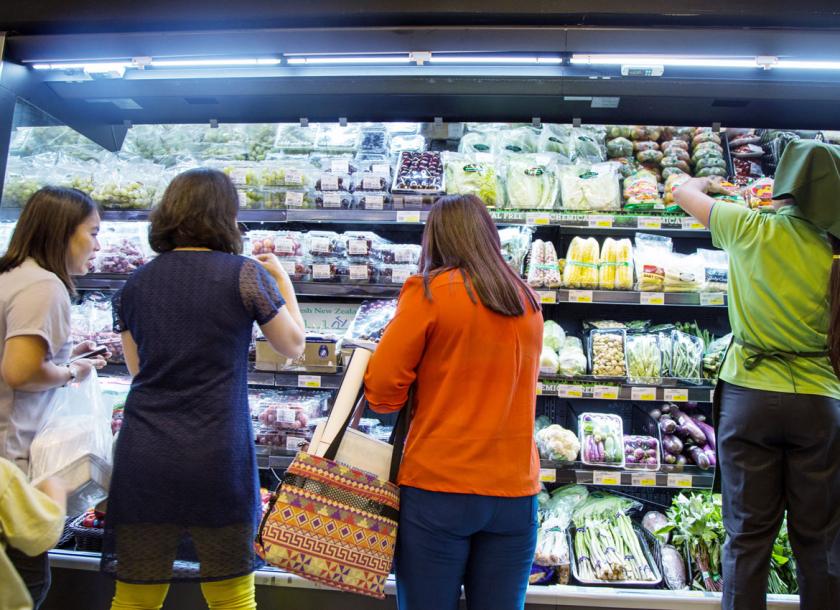
Ministry of Commerce has allowed foreign businesses and joint ventures to carry out business in the retail and wholesale sector (Ministry of Commerce Directive 25/2018 dated 9 May 2018)
Foreign businesses and joint ventures are now allowed to carry out businesses in the retail and wholesale sector, according to the latest directive from the commerce ministry. Leading business groups hailed the move as a right step towards attracting inwards investments for Myanmar. The ministry issued the Directive 25/2018 on May 9, authorising 100 percent foreign-owned companies as well as joint ventures between international and domestic investors to carry out retail and wholesale businesses. The trade policy is essential for reforming the economy of the country. The liberalisation measure, the directive explained, was to foster competition in the sector to provide more options, cheaper options and better options for consumers across the country. This will bring in technology and quality products for the sector, facilitate growth of small and medium-sized enterprises (SMEs), attract more foreign investments and create jobs. It will also help “prevent unfair competitions among the distributors, who are exploiting the consumers.”
เกาะติดข่าว
Copyright © 2014 Business Information Center All Rights Reserved.







